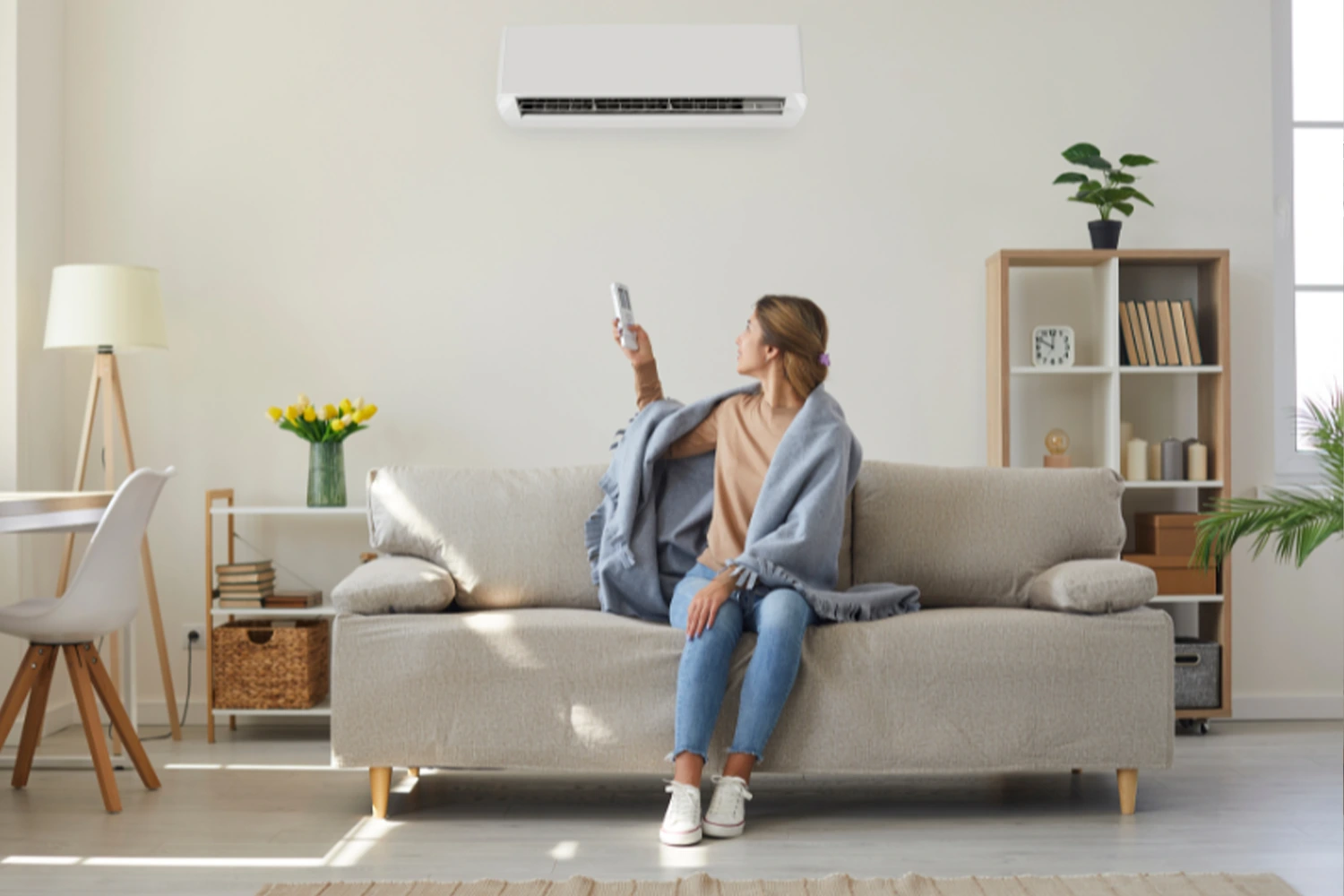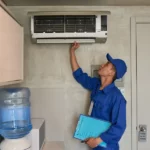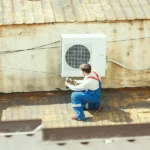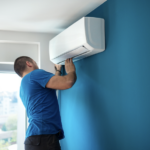How long should my HVAC fan run per hour in winter? How about during the summer?
HVACs play a crucial role when it comes to keeping your home comfortable. If you’re wondering about how your HVAC fan works and how long it should run per hour, you’re in luck.
In this article, we’ll break it down in simple terms, providing you with the information you need to strike the perfect balance between comfort and efficiency.
The Basics of HVAC Fan Operation
HVAC systems typically come with a fan that can run in two main modes: “Fan On” and “Fan Auto”.
Fan On
Fans set to “on” will run continuously, even when your HVAC system is not actively heating or cooling your home. This constant circulation can be beneficial for air quality and comfort in some cases.
Fan Auto
In “fan auto” mode, the fan only runs when your HVAC system is actively heating or cooling your home. It stops when your desired temperature is reached, giving it a break until it’s needed again.
Factors Affecting HVAC Fan Runtime
Several factors can influence how long your HVAC fan should run per hour:
Climate
The climate in your region significantly impacts your HVAC system’s operation. In hot and humid climates, such as Florida, the need for cooling is more frequent. As a result, your HVAC fan may run more often to maintain a comfortable indoor environment. Conversely, if you’re wondering “How long should my HVAC fan run per hour in winter?”, the fan may run less frequently, depending on your cooling and heating needs.
Insulation
The quality and effectiveness of insulation in your home can’t be overstated. Well-insulated homes retain temperature better, reducing the workload on your HVAC system. When your home is well-insulated, your HVAC fan can take breaks between cycles, resulting in less runtime.
Thermostat Settings
Your settings directly impact how often your HVAC fan runs. Setting your thermostat to a narrow temperature range can make your HVAC system work harder to maintain that range, leading to increased fan runtime. Conversely, setting a wider temperature range can allow your system to rest more frequently.
HVAC System Size and Efficiency
The size and efficiency of your HVAC system play a crucial role in determining fan runtime. A properly sized and well-maintained HVAC system operates more efficiently, achieving your desired temperature with less effort. This efficiency can lead to shorter fan runtimes while still providing optimal comfort.
Ductwork
The condition of your home’s ductwork can affect fan runtime as well. Leaky or poorly insulated ducts can lead to temperature losses, making your HVAC system run longer to compensate. Regular duct maintenance and sealing can help mitigate this issue.
Usage Patterns
Your daily routines and usage patterns also influence HVAC fan runtime. If your home is occupied throughout the day and evening, the fan may run more frequently to maintain comfort. Conversely, if your home is empty during certain hours, the fan may run less.
Tips to Improve HVAC Fan Performance
Ensuring that your HVAC fan operates at peak performance is essential for maintaining comfort and energy efficiency in your home. Here are some of the best tips to enhance your HVAC fa’’s performance:
Regular Maintenance
One of the most effective ways to improve HVAC fan performance is to schedule regular maintenance. A well-maintained system runs more efficiently, and the fan operates optimally. This includes cleaning or replacing air filters, lubricating moving parts, and inspecting for any wear or damage.
Use High-Quality Air Filters
Choosing high-quality air filters for your HVAC system can make a significant difference in fan performance. These filters trap more dust and allergens, leading to better airflow and improved air quality. Be sure to replace or clean them as recommended by the manufacturer.
Clear Obstructions
Ensure that there are no obstructions around your HVAC system’s outdoor unit or indoor vents. Blocked airflow can strain the fan and reduce efficiency. Keep the area around the outdoor unit free of debris, leaves, and vegetation.
Seal Ductwork
Leaky or uninsulated ducts can lead to temperature losses and increased fan runtime. Inspect your ductwork for any leaks or gaps and seal them appropriately. Additionally, consider insulating ducts in unconditioned spaces like attics or crawl spaces.
Adjust Thermostat Settings
Optimizing your thermostat settings can help improve fan performance. Set your thermostat to a temperature range that suits your comfort needs without overworking the HVAC system. Avoid frequent adjustments, as this can lead to increased fan runtime.
Use Programmable Thermostats
Invest in a programmable thermostat to create a customized schedule for your HVAC system. This allows you to reduce fan operation when it’s not needed, such as when you’re away or sleeping, while ensuring comfort during your active hours.
Properly Size Your HVAC System
If you’re installing a new HVAC system or replacing an old one, ensure it’s correctly sized for your home. An oversized system can lead to short cycling, where the fan runs more frequently but for shorter periods, reducing efficiency. Consult with an HVAC professional to determine the right size for your home.
Keep Vents Open and Unblocked
Make sure all vents and registers in your home are open and unblocked by furniture or other objects. Blocked vents restrict airflow and force the fan to work harder to distribute air evenly.
Consider Upgrading to a Variable-Speed Fan
Variable-speed fans are more efficient than traditional single-speed fans. They can adjust their speed to match the heating or cooling needs of your home, reducing energy consumption and improving comfort.
Frequently Asked Questions
Is it OK to run my HVAC air fan continuously?
While running your HVAC air fan continuously can improve air quality and comfort, it will use more electricity and increase energy bills.
How many hours a day should my HVAC run?
The number of hours your HVAC should run daily varies based on factors like climate and thermostat settings. It’s best to follow a schedule that meets your comfort needs without unnecessary runtime.
Does my HVAC fan use a lot of electricity?
It will depend on the unit you own. If your HVAC fan uses a lot of electricity, running it continuously can lead to higher electricity consumption.
Can I run my HVAC fan all night?
You can run your HVAC fan all night. However, it may not always be necessary and could increase energy costs. Consider using the “auto” setting for better efficiency.
How long should my HVAC fan run per hour in winter?
In winter, your HVAC fan should run long enough to evenly distribute warm air throughout your home, typically in short cycles to maintain comfort and efficiency.
Summary
So back to the question: How long should my HVAC fan run per hour in winter or in summer?
The answer to that will ultimately depend on the HVAC unit you own and the factors mentioned above. Either way, follow the tips above so you can make sure your fan performs at its best. If your HVAC fan is acting up, don’t hesitate to call your trusted HVAC professional.






